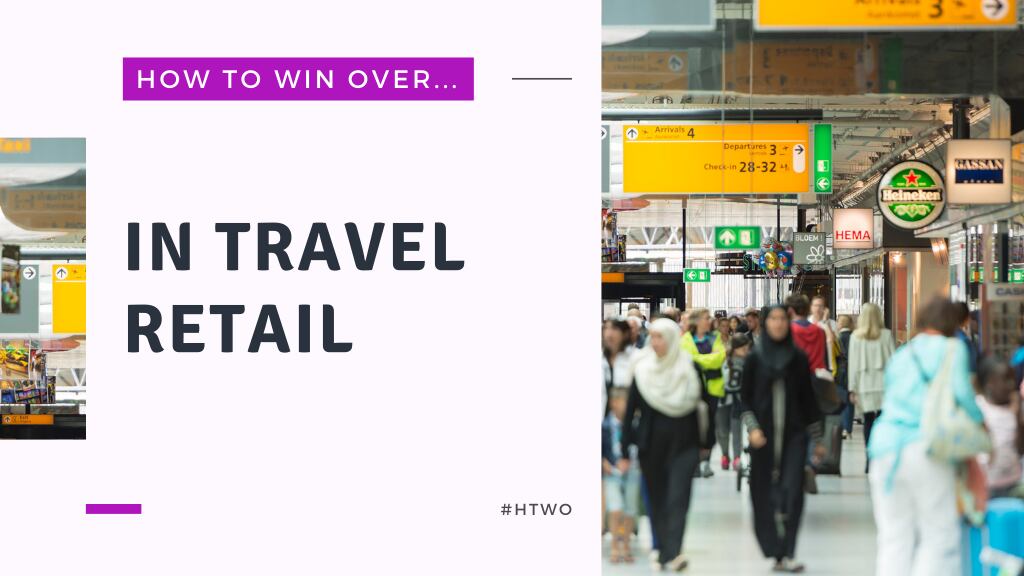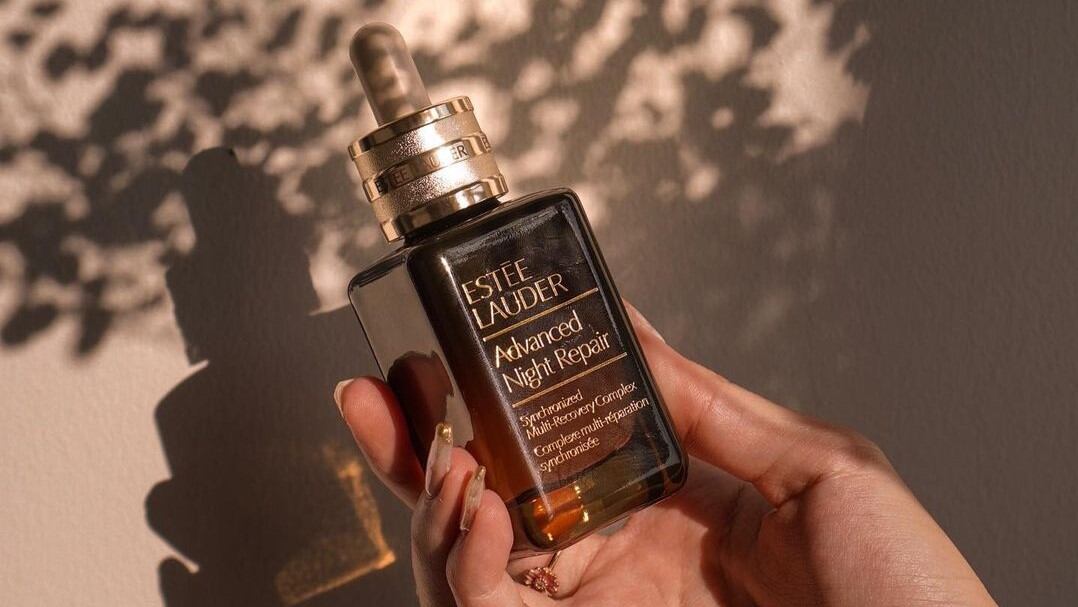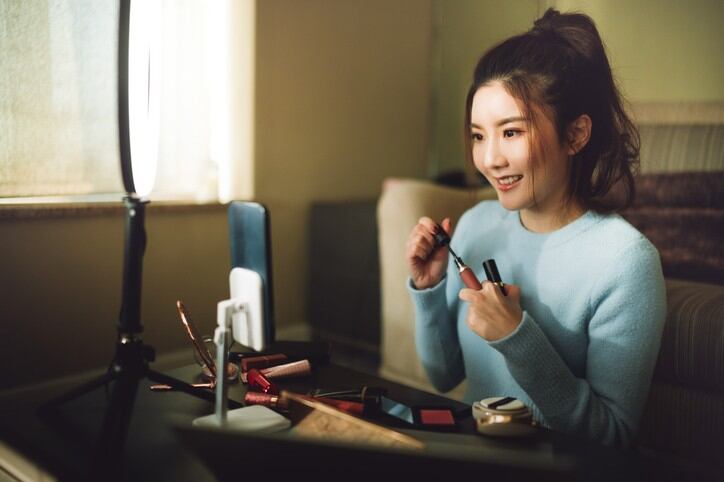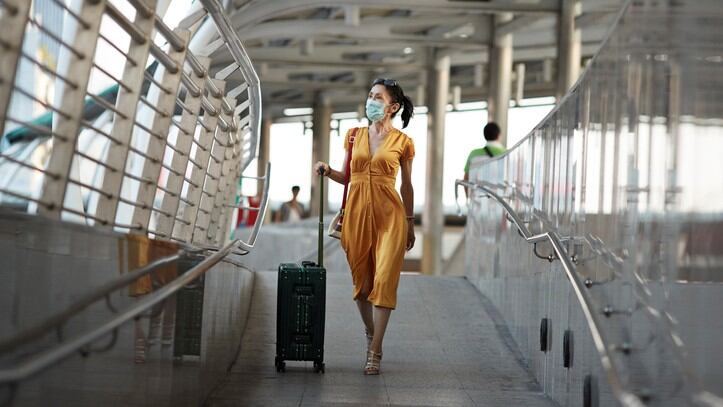In this feature, we explore the appeal of duty-free shopping, and the key purchase drivers and look at the future challenges in what is considered to be the ultimate brick and mortar channel.
Prior to the COVID-19 pandemic, beauty was booming in travel retail. At the heart of it was Asia Pacific, home to some of the most vibrant travel retail markets, and incidentally, the most vital beauty markets.
This set the stage for all the major beauty brands to host striking pop-up campaigns and make a splash with new launches.
“Travel retail is first all a key platform where most brands showcase their products. In a single place, shoppers can find key beauty brands along with their new launches,” said Anna Marchesini, head of business development of travel research agency m1nd-set.
In 2019, Shiseido launched the SENSE Beauty Pop-up at Singapore’s Changi Airport, roping in state-of-the-art technology to create a sensory retail experience for travellers. It leveraged augmented reality (AR) technology to introduce travellers to the products in an immersive way.
This multi-sensorial pop-up was meant to move ‘beyond traditional retail’ to help the brand engage consumers more deeply.
Such initiatives made 2019 an extremely successful year for Shiseido Travel Retail, which recorded net sales of ¥102.2 billion (US$936.8 million) – the first time it exceeded JPY100bn in sales. This represented a fourfold growth in just four years.
As the COVID-19 pandemic restrictions start to ease across the world, we are starting to see an end to the pandemic. International travel remains one of the final sectors to make a recovery, and its recovery is all but certain (as long as we are able to keep COVID-19 under control) as many seek to satiate their wanderlust after over two years.
By extension, we will also see the long-awaited recovery of the travel retail sector, and APAC will play a huge role in driving the recovery, according to Sunil Tuli, president of the Asia Pacific Travel Retail Association (APTRA).
“We must never lose sight of the huge opportunities offered by this region,” said Tuli, who is also the CEO of King Power, Hong Kong, during the during the Tax Free World Association (TFWA) Asia Pacific Live event held in Singapore.
“It remains the engine room of global travel retail. By sharing a more cooperative partnership abroad, we are in a position to drive the industry forward. If you want to know where travel retail recovery will be centred, it's right here.”
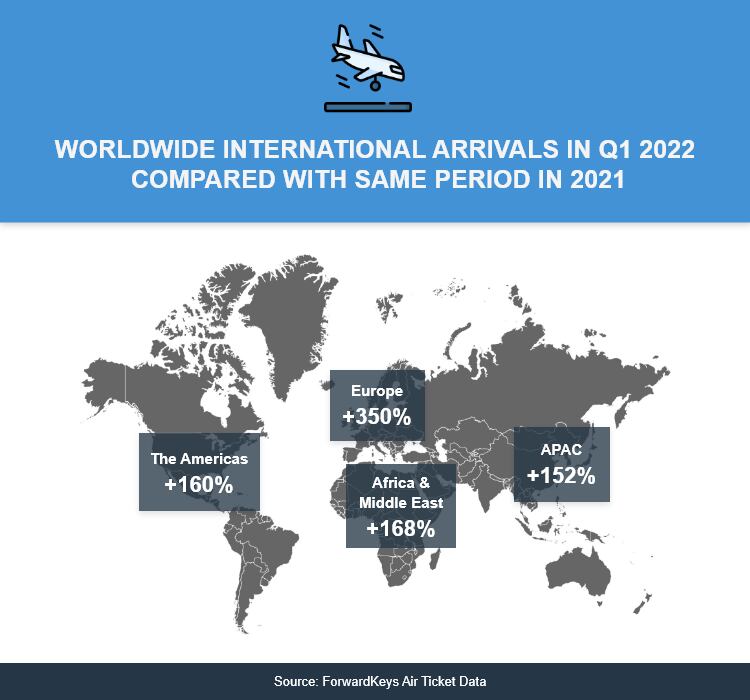
The greatest showcase: Travel retail and beauty
It is no secret that beauty brands are enamoured with travel retail. Not only does it rake in big bucks; the whole atmosphere constantly buzzes with the excitement of new launches and new retail experiences.
In the past few years, beauty majors such as L’Oréal, Estée Lauder, Shiseido have had major success in the travel retail channel. We have also seen companies like Kao and Pola Orbis clamouring for a share of the pie with expedited expansion plans.
“The environment and shopping experience that luxury brands provide for travellers is of great significance,” said Melvin Broekaart, director of global travel retail of Dutch beauty and wellbeing brand Rituals.
“Travel retail offers brands the unique prospect of reaching consumers who have time on their hands and are more likely to make impulsive purchases. Through travel retail exclusives and activations, brands draw and engage with new consumers.”
Broekaart explained that travel retail is often the first channel of contact consumers have with the Rituals brand.
“For Rituals, travel retail is the first channel of brand contact in most countries as we often enter new markets with [travel retail shop in shops] first before we open domestic retail stores. Creation of brand awareness is key. Travel retail is an important, strategic channel for Rituals’ overall business, both as a sales driver but also as a crucial touchpoint with travelling consumers around the world.”
Over the next few years, Broekaart said the firm was expecting “strong growth” in the APAC travel retail market.
It is planning to increase its footprint on Hainan Island, China’s travel retail mecca, with three more stores this year. Additionally, it is gearing up for expansion in South East Asia, both in travel retail and domestically.
“There is a significant amount of investment being made within the region and Rituals is well-positioned to grasp opportunities as the region’s travel retail industry recovers. Rituals’ APAC extension plans include opening a local headquarters in Shanghai at the end of this year, growing the APAC travel retail team in Hong Kong to prepare for growth and opening stores in Indonesia, Cambodia and Malaysia,” said Broekaart.
Furthermore, beauty is considered a vital category for travel retailers. According to Bain & Company’s China Luxury 2021 report, personal luxury makes up around 95% of sales on Hainan Island and luxury beauty accounts for more than half of that number.
Ashish Chopra, CEO Delhi Duty Free Services (DDFS), revealed that for the month of April, perfume and cosmetics (P&C) surpassed all other categories for the Indian travel retailer.
“P&C is very important for the scheme of things. Our growth for P&C from 2018 to 2020 has been at about 30%," he said during TFWA Asia Pacific Live.
From April 2019 to Apr 2022 the category grew by 5% in terms of sales. Chopra noted that sales were possibly hampered by factors such as the lack of testers and he had no doubt the category will continue to grow.
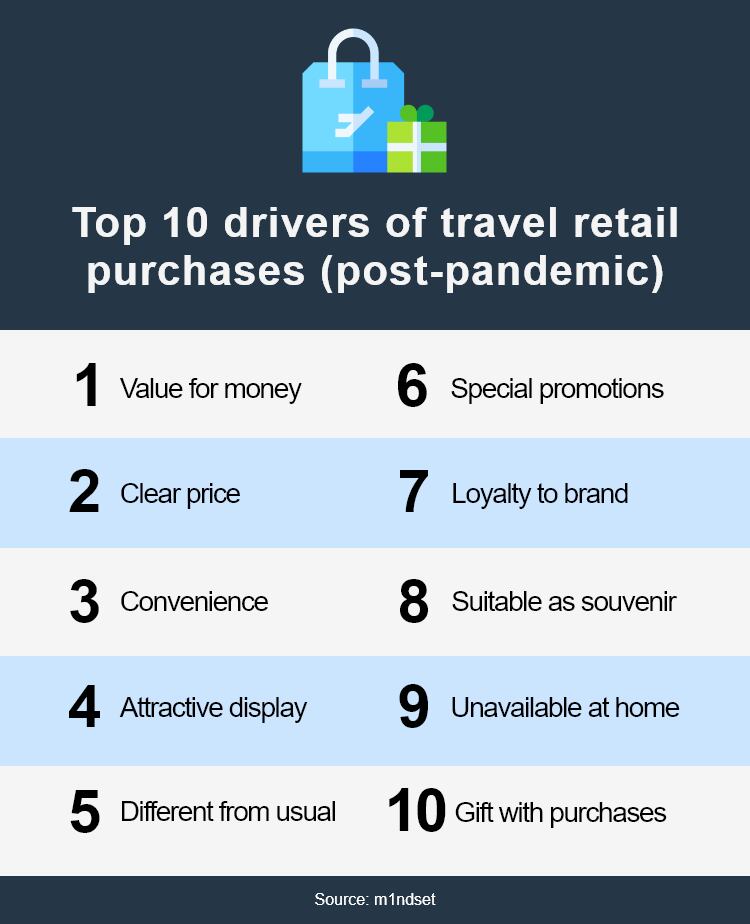
In the mood to shop: Key purchase drivers
When travelling, it is almost customary to leave the airport with a duty-free purchase, be it chocolates, souvenirs, a nice bottle of wine or a designer fragrance. But what exactly compels the busy traveller to stop and make a purchase?
To Marchesini, the answer is obvious: people are simply in a different mindset when they travel.
“They are usually more open to discovering, to take the time for shopping, treat themselves, and enjoy the whole experience,” she said.
According to a survey the company conducted in the first quarter of 2022, 25% of beauty consumers said the appeal of duty-free shopping was the time to browse and discover.
Secondly, 24% of them highlighted that it was a convenient way to shop. “This goes back to what I mentioned before, of finding all the beauty brands in one place coupled with the time available to browse those brands,” said Marchesini.
When it comes to what drives them to make a purchase, the perceived value for money topped the rankings, followed by convenience. Other drivers included brand loyalty, attractive displays as well as differentiation.
“Surely attractive displays and promotions would drive attention and trigger purchases. Beauty is actually performing well in terms of footfall, however, the big challenge is the decreasing conversion rate. This means that in-store elements have to make a big difference and convert those visitors into buyers,” said Marchesini.
Such elements would include having appealing promotions, accessible sales staff, as well as attractive displays, billboards, gondolas, and pop-ups.
Post-pandemic, Marchesini has observed that more travellers making travel retail purchases to treat themselves. “Self-indulgence has gained importance after the pandemic as it seems that beauty shoppers are more in a mood of treating themselves in general while travelling.”
Rituals has also observed something similar. The brand believes the pandemic triggered a greater need for wellness among consumers, which has benefitted its product offering.
"Many people will be feeling overwhelmed as the world opens up again and events restart, and Rituals is committed to supporting customers in finding a moment to slow down as their lives become busier again,” said Broekaart.
“For Rituals, travel retail is one of the world’s most scalable environments for conveying the concept of wellbeing to a large consumer group who – especially in a post-COVID travel era – welcome a stronger well-being component to their lives and their travels.”
The future is online: Exploring the role of digital in travel retail
In just two short years, nearly every aspect of our lives has altered as the pandemic forced us to move online to shop, play, work, and socialise. This has driven every organisation to embrace the digital transformation, and it is no different for travel and travel retail.
In travel, we rely on our digital devices for information, to retrieve our bookings, and to entertain us while we are in transit. However, when it comes to travel retail, the digital movement still has miles to go.
“If I have to be brutally honest, I will have to say at the moment, there's almost no role for online in travel retail, because nobody is picking it up. I think from a theoretical and a desirability point of view, there's a big role – and it's waiting out there,” said Broekaart.
He emphasised that digital innovation was especially important in APAC. The brand has already gone live in WeChat with retailers DFS and Lagardère and has even hosted livestreams with the latter.
“Online selling and engaging customers digitally are such hot topics in APAC travel retail, and we need to embrace this channel or risk losing important brand contacts,” he said.
Recently, Shiseido-owned NARS Cosmetics partnered with China Duty Free Group (CDFG) to unveil Nonstop Nars Virtual World, the brand’s first-ever 3D Virtual Animation (VA) to address new consumer demands in the post-pandemic world.
The digital platform showcased the brand’s travel retail-exclusive products and engages with consumers in an interactive digital world that showcases NARS’ makeup artistry through edu-tainment, discovery, and gamification elements.
A huge gap that Broekaart sees is a solution that makes the consumers’ journey as convenient as possible, from a retail perspective. For instance, he pointed out that many travellers may not make a purchase simply because it would be a hassle to carry them on their journey.
“As an industry, it is important to make the purchasing process easier for travellers and offer the possibility of shipping the product to their home, for example by simply scanning a QR delivery code on the shelf.”
However, this seemingly simple service itself comes with complicated problems. For instance, it would expensive and not eco-friendly to ship one product across the world. For such a delivery service to make sense, a brand would need to tap into its global logistics network.
“Let’s say the seller at the airport knows this product needs to go to my home in Netherlands, they can easily connect to our logistic fulfilment centre that we have in Amsterdam. So, I pay the price in travel retail, and it gets shipped from Amsterdam to my home address – that’s global purchase with local shipping,” said Broekaart.
“From a customer point of view this is very desirable, most likely, I would even buy more than just one because hey, if I don't have to carry and I like it a lot. That's just perfect. That's the best of both worlds in this little example.”
Broekaart revealed that Rituals was currently in the process of testing such ideas. “We're actually putting it into practice to measure all the way through if it's valuable for our retail partners and if it's interesting for our consumers. If both of the answers to those questions are yes, then we're trying to push it forward.”
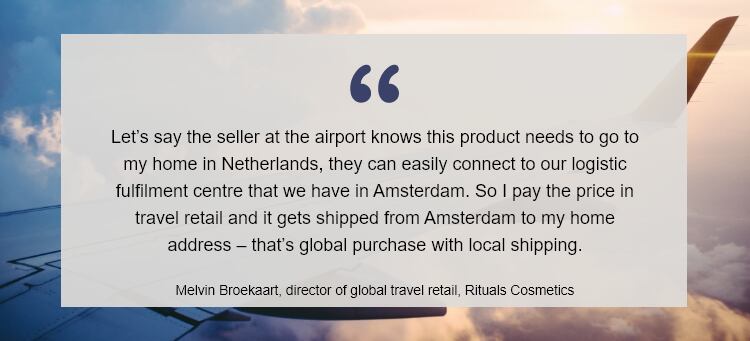
The green factor: Sustainability in travel retail
In the post-pandemic world, there is one elephant in the room we cannot afford to ignore – sustainability.
In a previous instalment of this series where we explored sustainability in beauty, we looked at what was driving the green beauty movement and how industry players were innovating to keep up with consumer concern for the environment.
And as the beauty consumer begins to travel, they may be even more conscious about their carbon footprint.
According to data from m1nd-set, 86% of travellers reported that they were concerned about living sustainably, a change of 44% compared to a couple of years ago.
For travellers, sustainability was among the top three factors that influenced the decision process, only behind brand and price.
When it comes to products, 69% of respondents said it was particularly important that brands offered products with eco-friendly ingredients. 67% highlighted the significance of eco-friendly packaging while 58% prized products made with eco-friendly production processes.
Interestingly, the top five countries with the highest concern about sustainability were all from APAC. Namely, New Zealand, Australia, Singapore, Japan and South Korea, in that order.
Rituals has also observed that travelling consumers are actively seeking brands with proven sustainability credentials.
“Consumers are conscious of what they purchase in that they want to feel that the product they are offered is necessary and contributes to a better future or at the very least is not harmful to the environment, making sustainability a key pillar of post-COVID growth in the channel,” said Broekaart.
Recently, Rituals joined a small handful of beauty companies in becoming a Certified B Corporation after undergoing three years of transformation.
Broekaart elaborated that the travel retail channel has a great opportunity to be a port of call where travellers can “find sustainability first”.
“If there’s one amazing – and maybe the world’s best platform or stage for storytelling – that’s travel retail. People spend their time being captive, behind customs and waiting for their flights. They have that one magical hour that they have to really soak up sustainability messages and discover products.”
With many casting an optimistic outlook for the APAC the travel retail sector in 2022, there is no doubt it will be a defining year in terms of recovery and transformation. Beauty is poised to be a driving force of recovery for travel retail, which will, in turn, boost the fortunes of APAC’s beauty industry.


